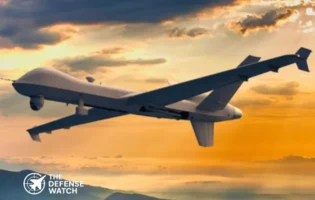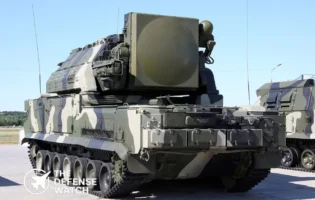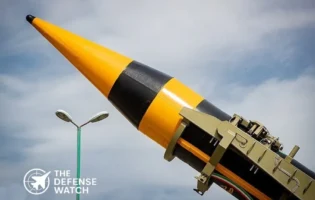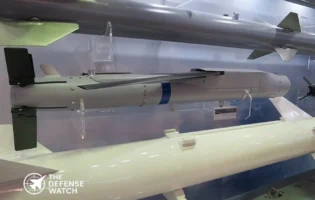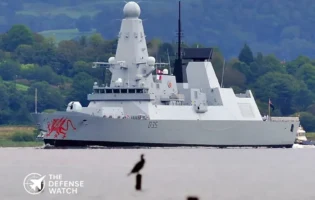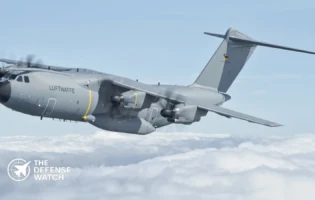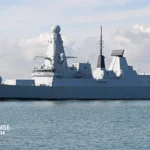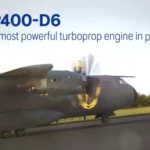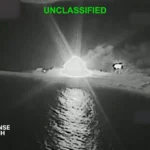F-22 Raptor vs F-35 Lightning II: Which Jet Dominates the Skies in 2025?
F-22 vs F-35 Comparison:
The F-22 Raptor vs F-35 Lightning II represent the pinnacle of American airpower, both crafted by Lockheed Martin for the U.S. Air Force and allied nations. While the F-22 was designed for absolute air superiority, excelling in speed, agility, and stealth, the F-35 serves as a multi-role stealth fighter optimized for strike missions, intelligence gathering, and interoperability. As global tensions rise and air dominance becomes increasingly data-driven, the Raptor vs Lightning II comparison is more relevant than ever. Both jets define the future of aerial warfare—but with different philosophies driving their design and combat roles.
Performance Verdict
When comparing the F-22 Raptor vs F-35 Lightning II, both fighters showcase unmatched fifth-generation technology, yet their strengths lie in different arenas. The F-22 Raptor, with twin Pratt & Whitney F119 engines, boasts superior thrust-to-weight ratio, supercruise capability, and exceptional agility—making it the world’s most formidable air dominance platform. Its stealth design and unmatched aerial combat performance make it nearly invisible to radar and lethal in dogfights.
In contrast, the F-35 Lightning II prioritizes multirole flexibility and digital warfare. Its advanced sensor fusion, electronic warfare systems, and seamless network integration give it the edge in situational awareness and joint operations. While slower and less maneuverable than the F-22, the F-35’s adaptability, lower maintenance costs, and export availability make it the future backbone of allied air forces.
Verdict: The F-22 reigns supreme in air superiority, but the F-35 defines the modern, connected battlespace of 2025.
Get real time update about this post category directly on your device, subscribe now.
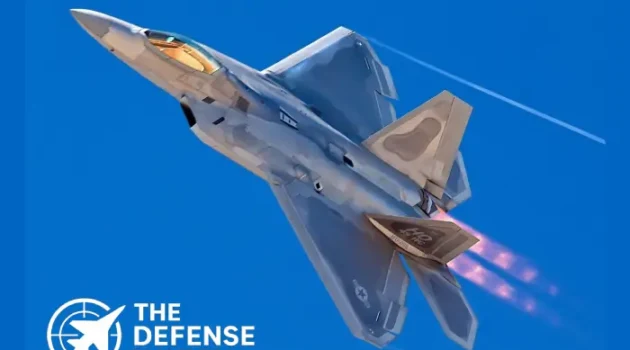
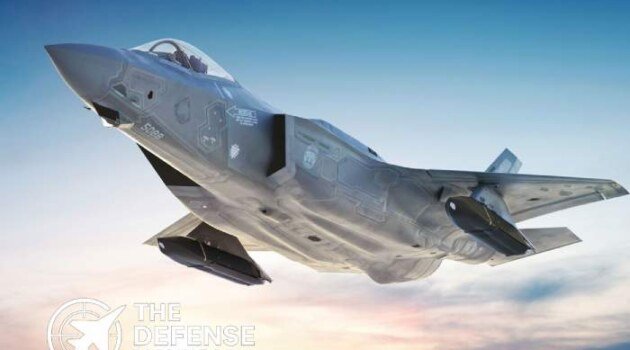
| |
| Price | |
| Our Rating | |
| Manufacturer | Lockheed Martin Lockheed Martin |
| Category | Fighter Jets Fighter Jets |
General Information
| Name | F-22 Raptor F-35 Lightning II |
| Manufacturer | Lockheed Martin, Boeing Defense Lockheed Martin |
| Country of Origin | United States United States |
| Type / Role | Air Superiority Stealth Fighter Multirole Stealth Fighter |
| Generation | Fifth Generation 5th |
| Status | In active service In Service |
| First Flight | September 7, 1997 December 15, 2006 |
| Introduction / In Service Since | December 15, 2005 2015 |
| Number Built | 187 operational units 1,200+ (as of 2025) |
| Operators | United States Air Force USA, UK, Japan, Israel, Italy, Australia, and others |
Dimensions & Structure
| Length | 62 ft (18.9 m) 51.2 ft (15.6 m) |
| Wingspan | 44.5 ft (13.6 m) 35 ft (10.7 m) |
| Height | 16.7 ft (5.1 m) 14.4 ft (4.38 m) |
| Wing Area | 840 sq ft (78 m²) 460 sq ft (42.7 m²) |
| Empty Weight | 43,340 lb (19,700 kg) 29,300 lb (13,300 kg) |
| Maximum Takeoff Weight (MTOW) | 83,500 lb (38,000 kg) 70,000 lb (31,800 kg) |
| Internal Weapons Bay | 3 total (1 centerline, 2 side) 2 (up to 5,700 lb payload) |
| External Hardpoints | 4 (non-stealth configuration) 6–10 (up to 18,000 lb total) |
Performance
| Maximum Speed | Mach 2.25 (2,414 km/h) Mach 1.6 |
| Range | 1,840 miles (2,960 km) 1,380 mi (2,220 km) |
| Combat Radius | 530 miles (850 km) ~670 mi (1,080 km) |
| Service Ceiling | 65,000 ft (19,800 m) 50,000 ft (15,240 m) |
| Rate of Climb | 62,000 ft/min (315 m/s) 45,000 ft/min |
| Thrust-to-Weight Ratio | 1.26 0.87 |
| G Limits | +9 G +9 |
Powerplant
| Engine Type | Pratt & Whitney F119-PW-100 turbofan Pratt & Whitney F135-PW-100 |
| No. of Engines | 2 1 |
| Thrust (each) | 35,000 lbf (156 kN) 43,000 lbf |
| Thrust Vectoring | Yes (2D pitch vectoring) Yes (on F-35B variant) |
| Fuel Capacity | 18,000 lb (8,200 kg) internal ~18,500 lb internal |
Armament
| Gun | 1× M61A2 Vulcan 20mm cannon GAU-22/A 25mm cannon (F-35A) |
| Missiles (Air-to-Air) | AIM-120 AMRAAM, AIM-9 Sidewinder AIM-120 AMRAAM, AIM-9X |
| Missiles (Air-to-Ground) | JDAM, SDB AGM-154 JSOW, AGM-158 JASSM |
| Bombs | GBU-32 JDAM, GBU-39 SDB JDAM, Paveway II/III, SDB I/II |
| Hardpoints | 4 external (optional) 6 external + 2 internal |
| Payload Capacity | 18,000 lb (8,200 kg) ~18,000 lb |
Avionics & Systems
| Radar | AN/APG-77 AESA radar AN/APG-81 AESA |
| Radar Range | 125+ miles (200+ km) ~150+ km |
| Electronic Warfare (EW) System | AN/ALR-94 suite AN/ASQ-239 suite |
| Targeting System | Integrated multi-sensor fusion EOTS (Electro-Optical Targeting System) |
| Helmet Display | Standard HUD (no HMD in baseline) HMDS Gen III |
| Navigation | GPS/INS GPS/INS with terrain-following |
| Autopilot / AI Assistance | Digital fly-by-wire Advanced flight management |
| Communication | Intra-flight data link, secure comms MADL & Link 16 secure data links |
Stealth & Technology
| Radar Cross Section (RCS) | ~0.0001 m² ~0.001 m² |
| Stealth Features | Radar-absorbent materials, internal weapons RAM coating, internal weapons bay, edge alignment |
| Infrared Signature Reduction | Engine exhaust shielding Yes |
| Sensor Fusion | Yes Full 360° data integration |
| Networking Capabilities | Limited Link-16, proprietary data link Distributed data-sharing with allied units |
Variants
| Special Export Versions | None (export restricted) F-35I (Israel), F-35A (Japan), etc. |
Operational History
| Major Conflicts / Deployments | Syria (2014–present) Middle East operations (Iraq, Syria) |
| Notable Operators | USAF (Air Combat Command, PACAF) USAF, USN, USMC, RAF, IDF |
| Combat Proven? | Yes Yes |
| Mission Types | Air superiority, interception, precision strike Air superiority, strike, SEAD, ISR |
Cost & Program
| Unit Cost | ~$150 million (flyaway) $80–100 million (variant-dependent) |
| Development Cost | ~$67 billion (program total) ~$400 billion (program total) |
| Program Name | Advanced Tactical Fighter (ATF) Joint Strike Fighter (JSF) |
| Funding Countries | United States only USA, UK, Italy, Netherlands, Canada, Australia, etc. |
Additional Information
| Upgrades Planned | Avionics, radar, networking, sensors Block 4, Tech Refresh 3 |
| Future Replacement | NGAD (Next Generation Air Dominance) NGAD (2035+) |
| Export Restrictions | U.S. Congress export ban U.S. FMS approval required |
| Notable Achievements | First operational 5th-gen fighter Widest global fighter program in history |
| Competitors | F-35 Lightning II, Su-57, J-20 Su-57, J-20, Tempest, KF-21 |
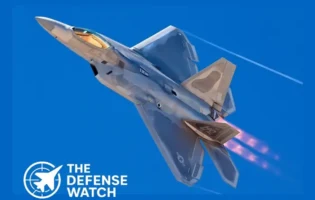
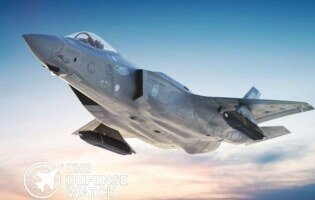
|
Disclaimer Note
The information provided on TheDefenseWatch.com is for general informational purposes only. While we strive to ensure the accuracy, completeness, and timeliness of our content regarding defense and aerospace products, technologies, and specifications, we cannot guarantee that all information is 100% accurate or up-to-date due to the evolving nature of military technology and classified data.TheDefenseWatch.com does not warrant the reliability, suitability, or availability of the information for any specific purpose. Users are advised to consult official sources, such as manufacturers, government publications, or defense agencies, for precise and verified data before making decisions based on our content.We are not affiliated with any defense manufacturers, governments, or military organizations mentioned. Opinions, reviews, and ratings reflect expert analysis but are subjective and should not be considered endorsements. TheDefenseWatch.com is not responsible for any errors, omissions, or consequences arising from the use of this website’s content.External links are provided for convenience and do not imply endorsement. TheDefenseWatch.com reserves the right to update or modify content without prior notice. By using this website, you agree to our Privacy & Cookies Policy.

